On the afternoon of August 30, the inaugural "Tsinghua Global Youth Dialogue" successfully concluded amidst a chorus of Auld Lang Syne. Under the theme of "United Youth, Shared Future," the Dialogue attracted over 60 youth representatives from more than 30 countries and regions worldwide.
The opening ceremony took place on the afternoon of August 29. Wang Xiqin, president of Tsinghua University, and UN Resident Coordinator in China Siddharth Chatterjee, delivered speeches online. The opening ceremony was attended by distinguished guests, including Xu Lyuping, vice chairperson of the Chin NGO Network for International Exchange, Dong Xia, deputy secretary-general of the All-China Youth Federation, Chen Dali, deputy director of the Department of International Cooperation and Exchanges, Ministry of Education, Irwansyah Mukhlis, a minister counsellor of the Indonesian Embassy in China, Abdumurzayev Askhat, an educational counsellor of the Kazakhstan Embassy in China, Guo Yong, deputy secretary of the CPC Tsinghua University Committee, and representatives from Astana International University in Kazakhstan and Gadjah Mada University in Indonesia. After the opening ceremony, youth representatives engaged in discussions with Wang Hongwei, vice president of Tsinghua University.
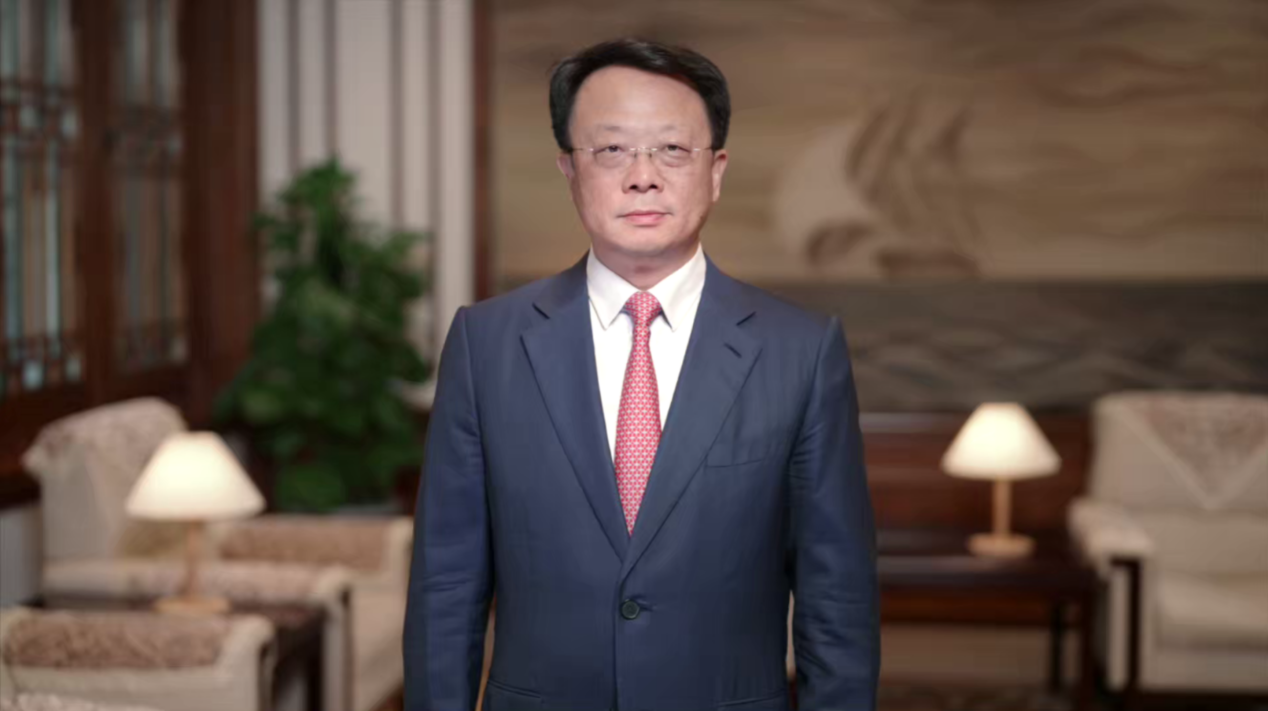
Wang Xiqin emphasized that the world is undergoing profound changes unseen in a century, and dialogues among youths are indispensable for human beings to address common challenges and move towards a better future. Upholding the educational philosophy of integrating China and the world, bridging the past and the present, and blending arts and sciences, Tsinghua University gives high priority to cultivating global competence of young students. The "Tsinghua Global Youth Dialogue" aims to provide a multilateral mechanism for exchanges and cooperation among youths around the world and encourages youths to join hands to contribute to global development. He also encouraged young people to transcend the interdisciplinary barriers of different knowledge systems, seek truth and goodness, and be capable of integration. They should transcend the value barriers of quick success and instant benefits, take a long-term view, and embrace global vision. In addition, he emphasized the importance of transcending the cultural barriers of different civilizations so that youth can better complement and help each other.
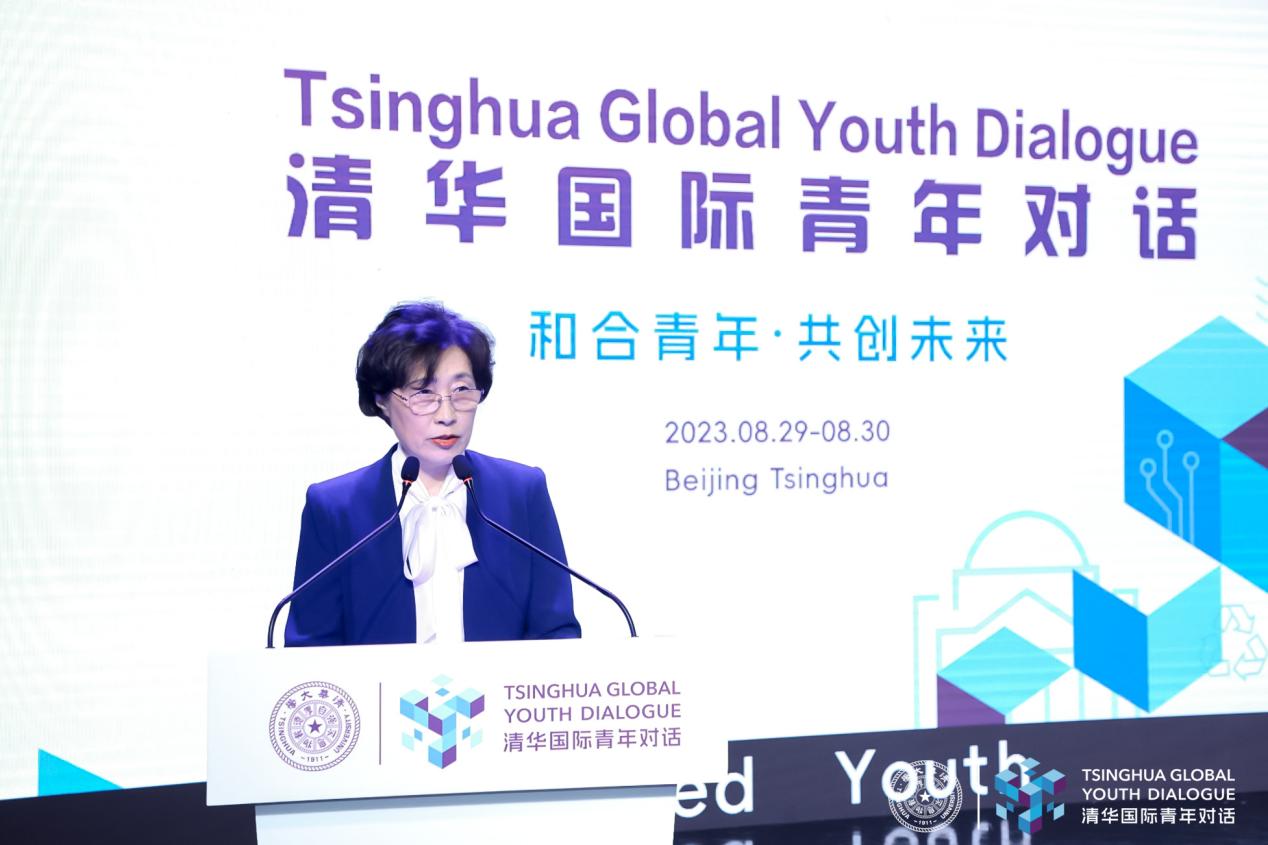
Xu Lyuping called for joint efforts to consistently strengthen cultural exchanges and mutual learning among civilizations, and to open up a new prospect of enhanced exchanges and understanding among different peoples to create better interactions and integration of diversified cultures. She encouraged young people to serve as bridges for exchanges between different civilizations with an inclusive attitude, engage in international cultural exchanges and cooperation with innovation, and contribute to making the garden of world civilizations colorful and vibrant.
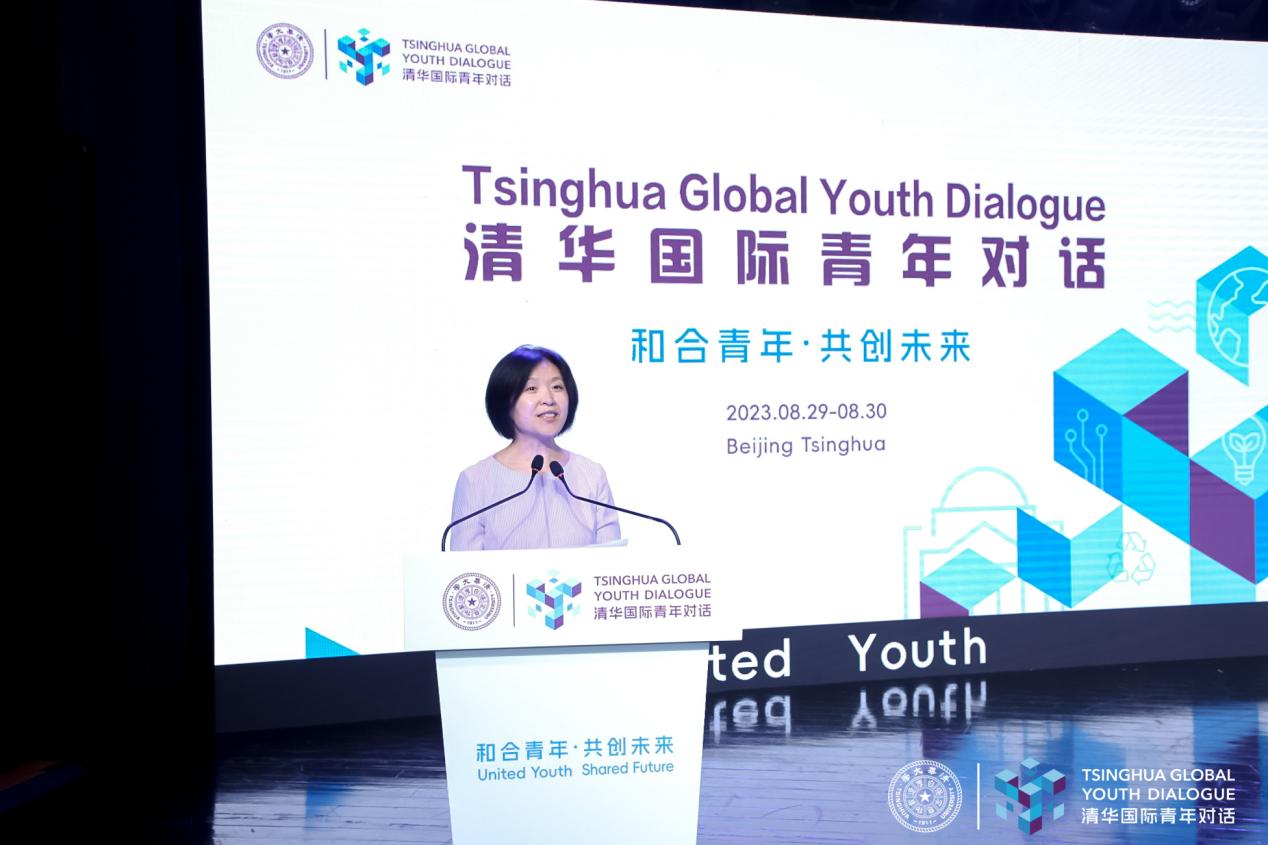
As noted by Dong Xia, in a digital age where opportunities and challenges coexist young people should seize opportunities and face challenges. They also play a significant role in advancing the construction of a community with a shared future for mankind. She also presented the World Youth Development Forum project currently underway by the All-China Youth Federation. This forum aims to create a platform where global youth can work together towards global development and countries worldwide can jointly advance youth development.
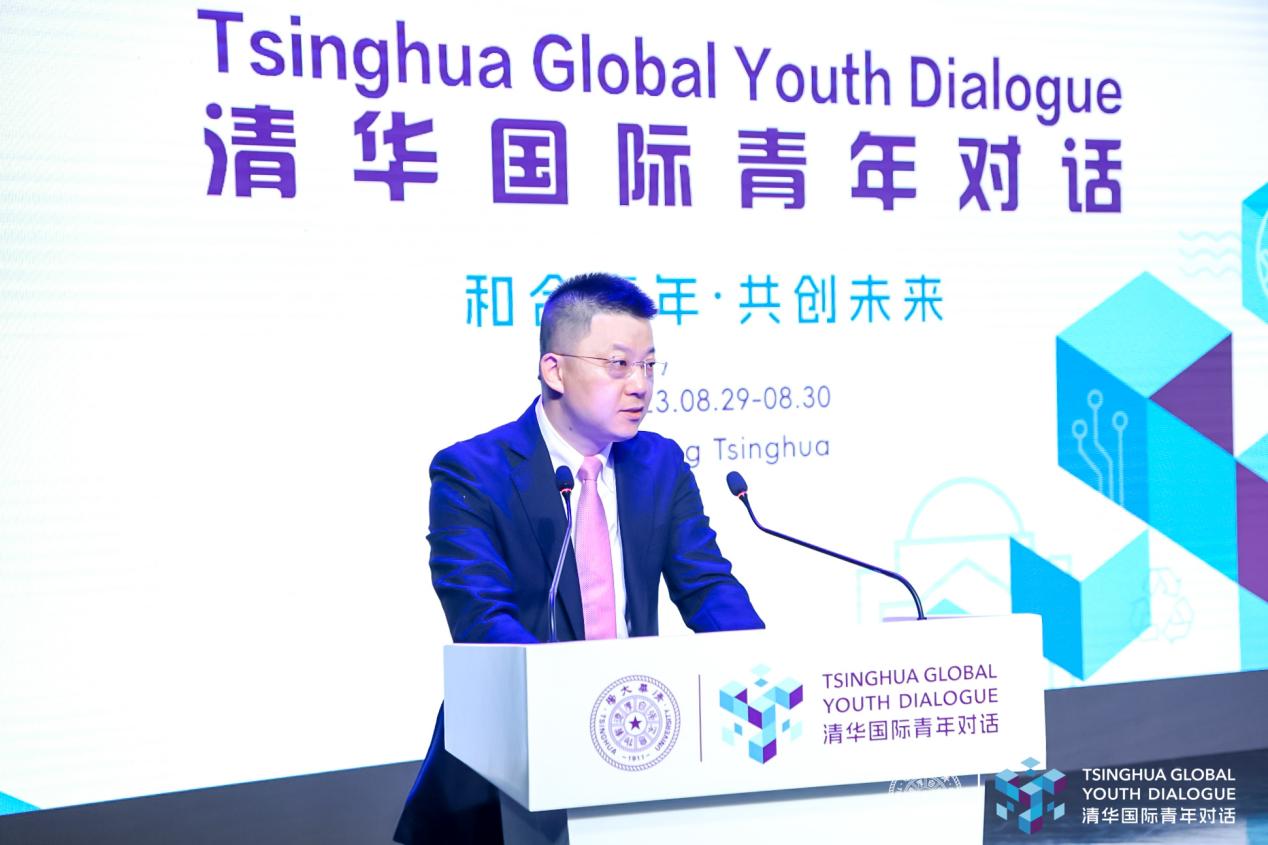
According to Chen Dali, cultural exchanges between China and other countries are essential for global civilization dialogue. The Ministry of Education of the People's Republic of China will expand the opening-up of education to the outside world and engage in comprehensive, multi-level, and wide-ranging international educational exchange and cooperation with countries worldwide. It will pave the way for Chinese youth to connect with the world and for young people from around the world to gain deeper insights into China.
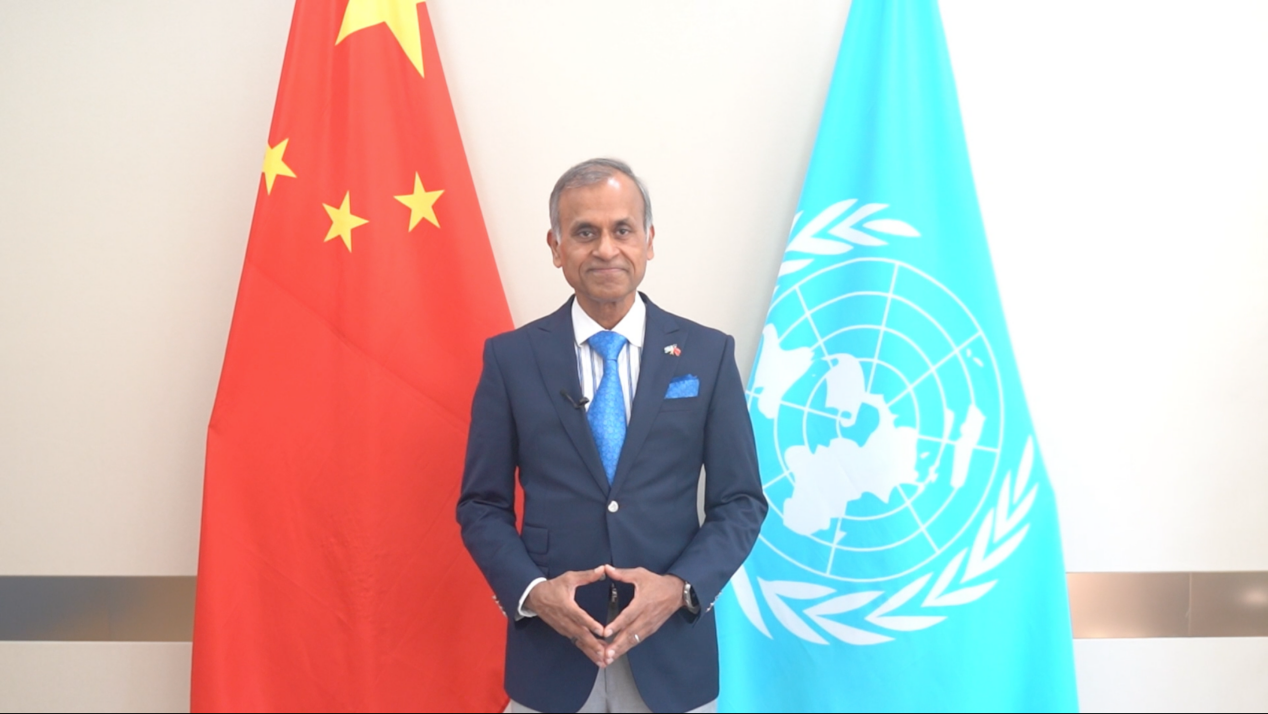
Speech by Siddharth Chatterjee
During an online speech, Siddharth Chatterjee, United Nations Resident Coordinator in China, pointed out that youth are a crucial force in addressing global challenges and enjoy unique advantages in the digital age, such as innovative mindsets, critical reasoning, and teamwork spirit. He also advised young people to have faith in their own potential, prioritize their responsibilities bravely, set good examples and take up leadership roles in their future positions. The UN will continue to support and stand with young people to help achieve the SDGs and shape a just and sustainable world.
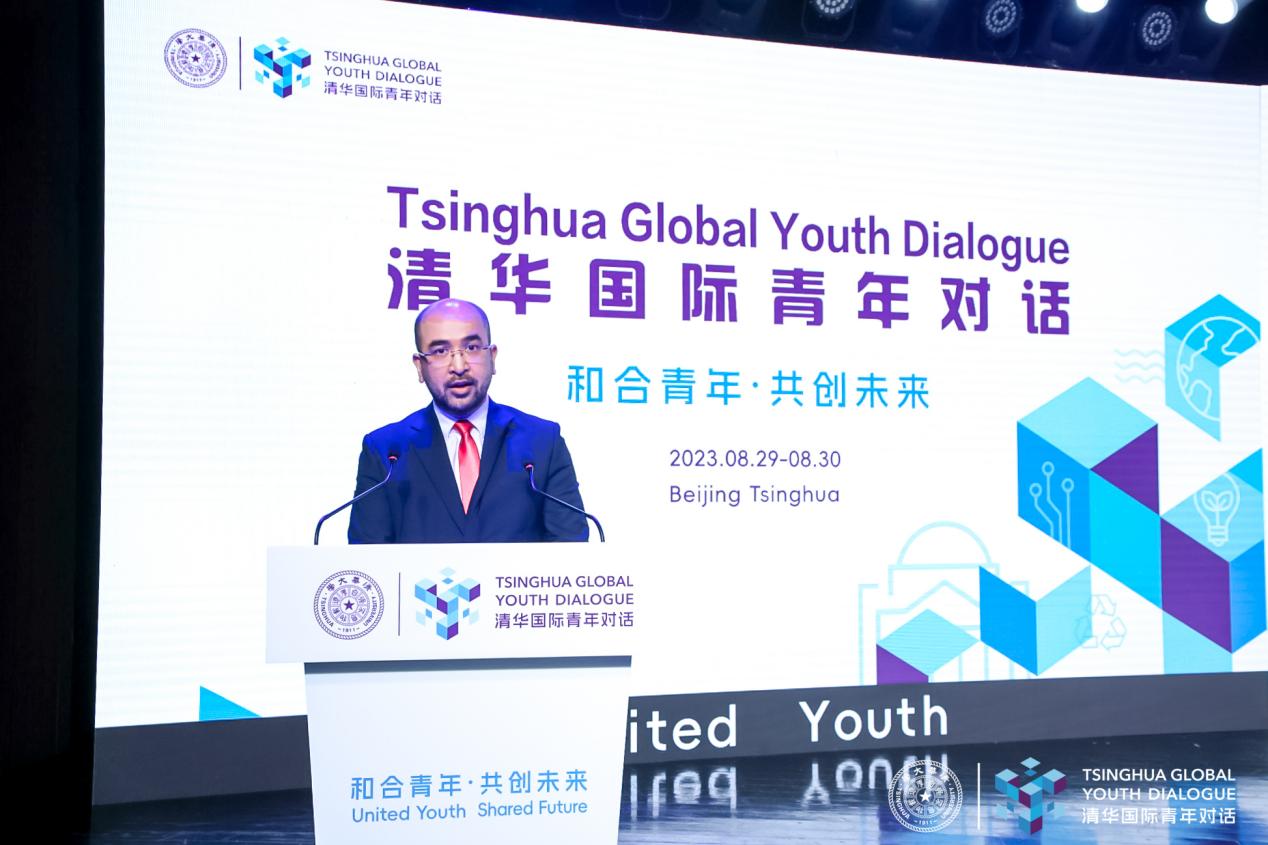
Irwansyah Mukhlis highlighted that young people play an important role in making a difference to the world. He called on various countries to strengthen partnerships among global youths and empower them for mutual learning.
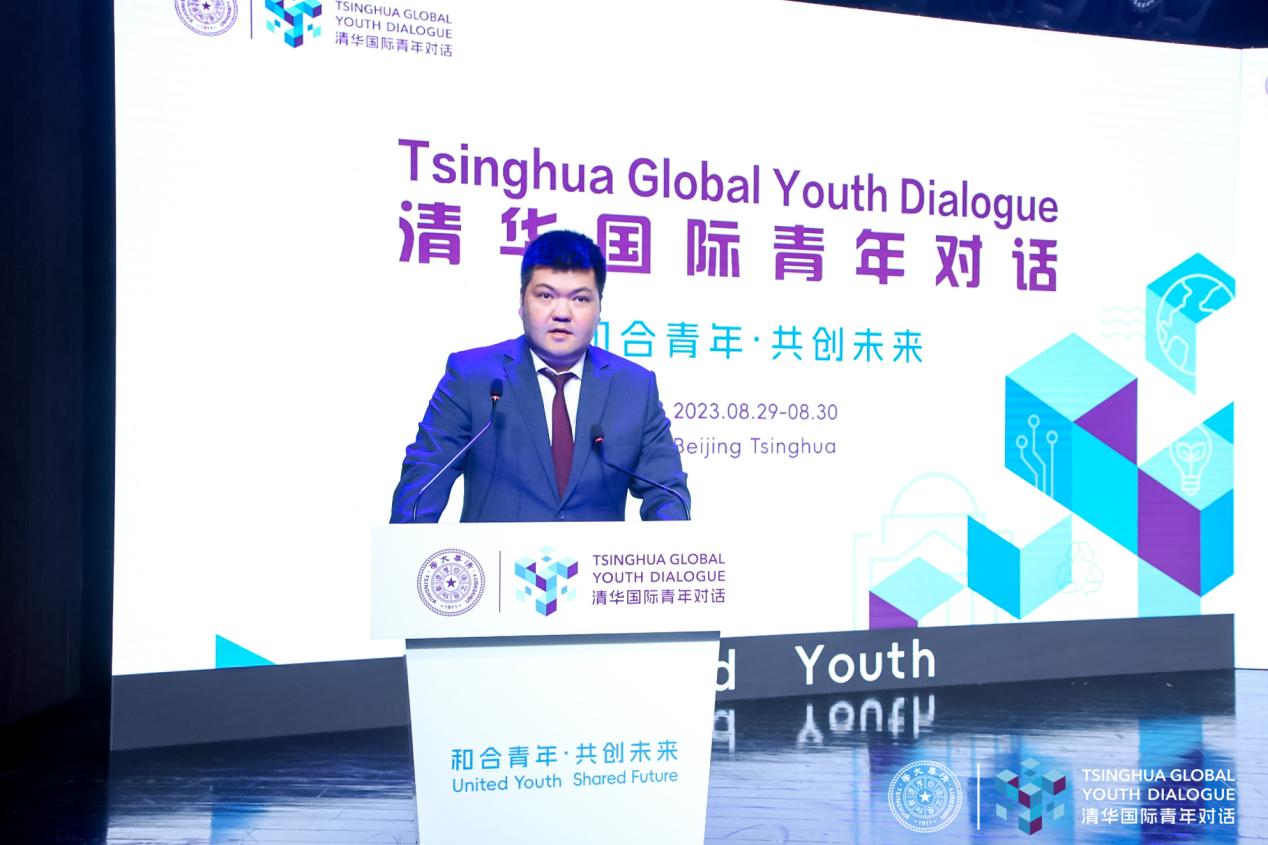
Abdumurzayev Askhat read a letter from Shahrat Nuryshev, Ambassador of Kazakhstan to China. Mr. Nuryshev expressed Kazakhstan’s willingness to collaborate with China in advancing connectivity in infrastructure and youth development projects in the future.
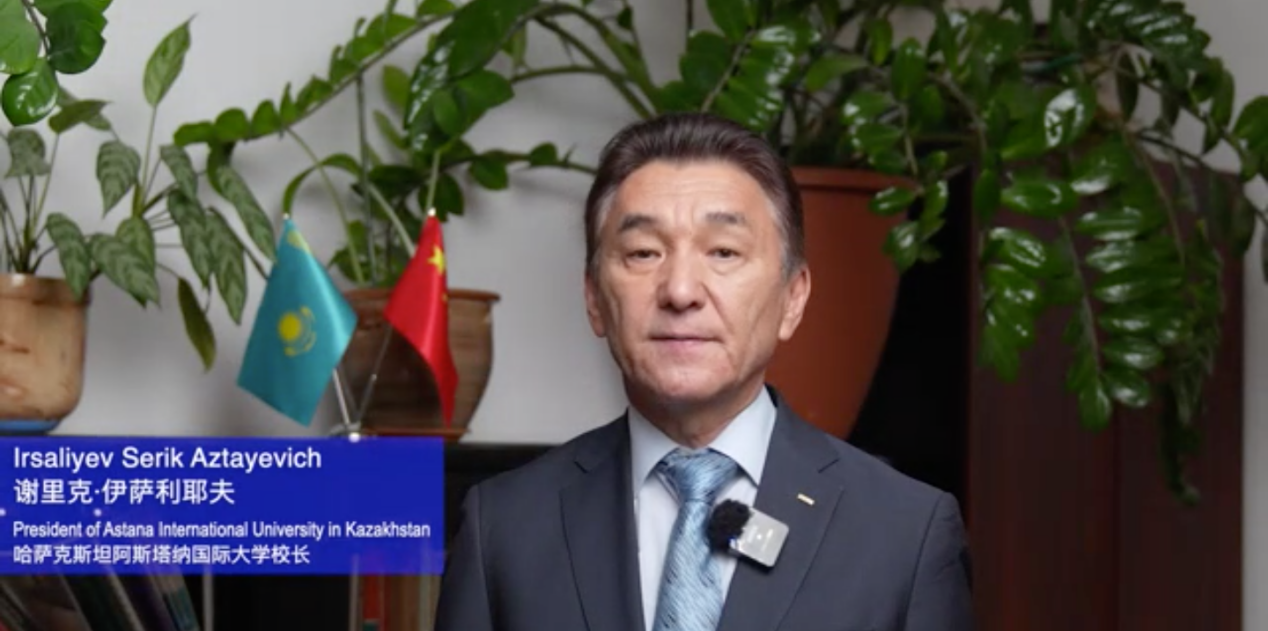
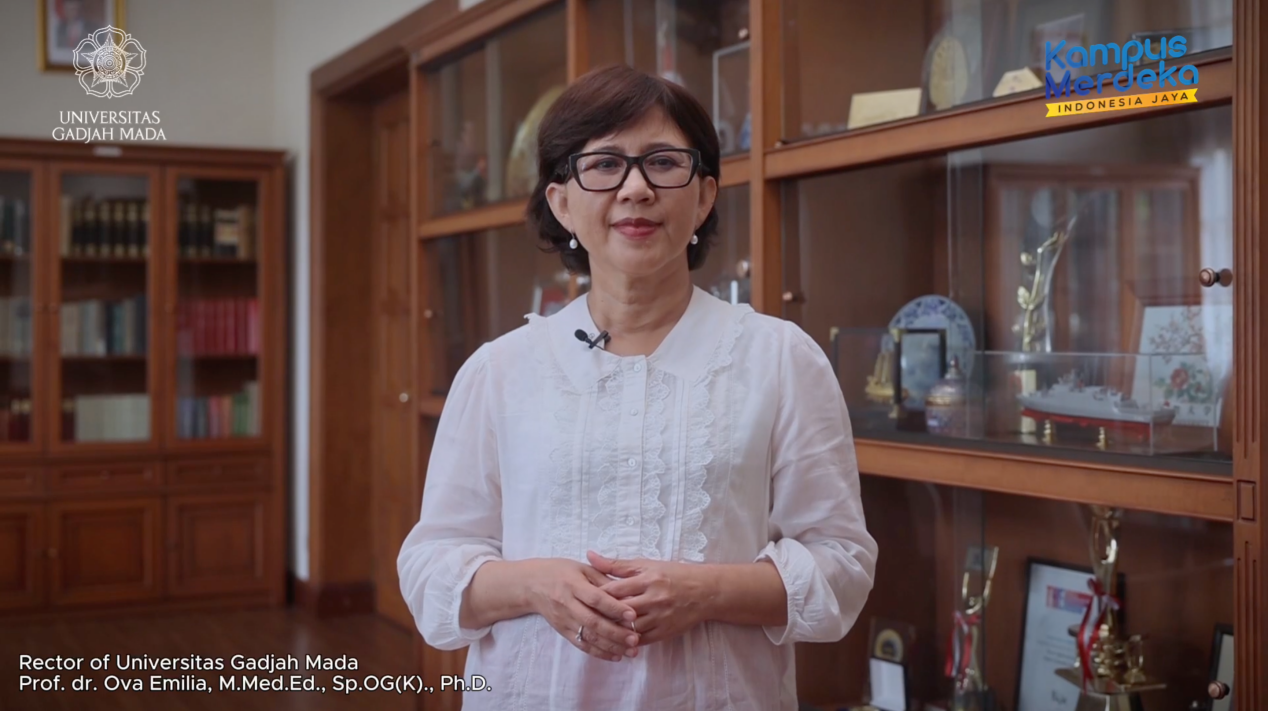
Irsaliyev Serik Aztayevich, President of Astana International University, and Ova Emilia, Rector of Universitas Gadjah Mada, separately delivered speeches online.
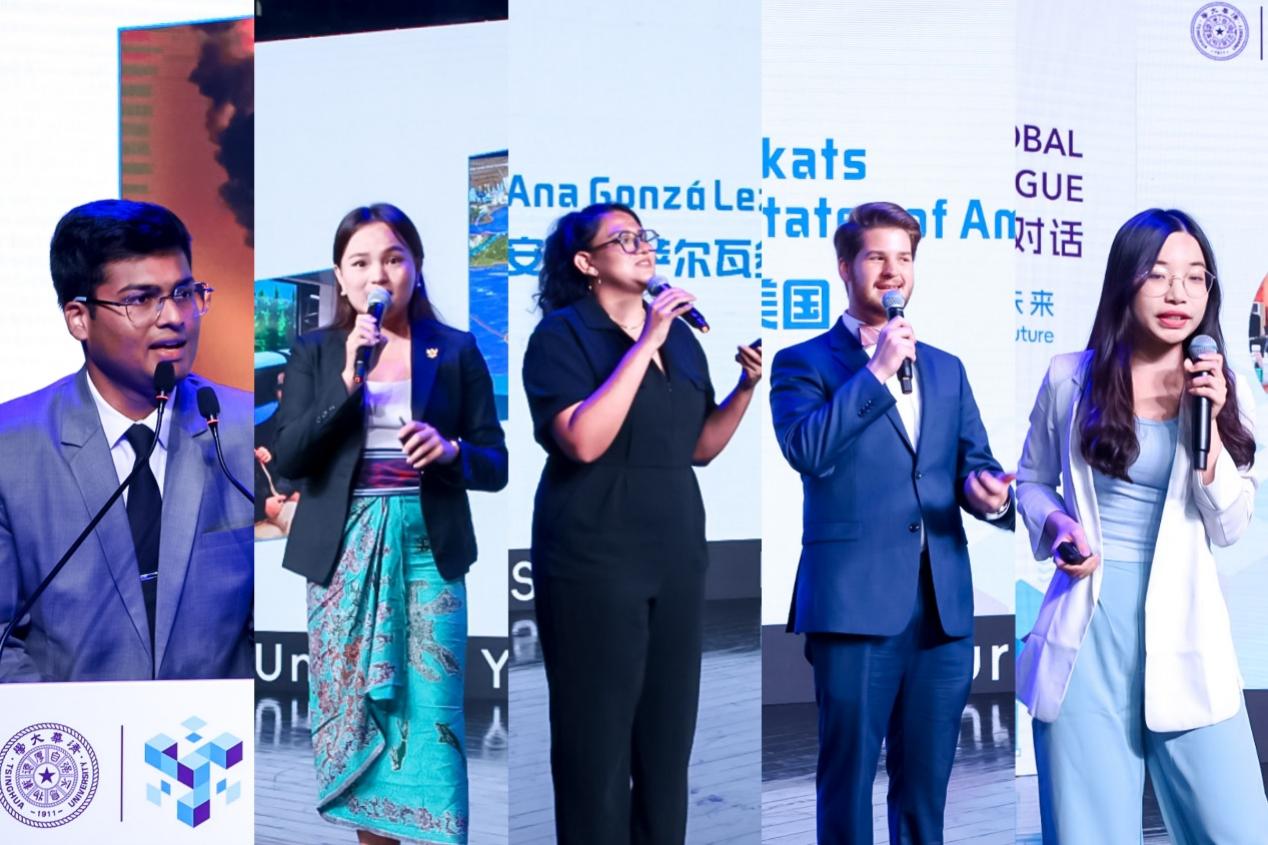
Youth representatives shared their stories at the opening ceremony. Aditya Garg from India showed photos of air pollution taken in India, expressing his determination to participate in environmental protection. Aie Natasha from Indonesia narrated what youth representatives experienced in China, including traveling on clean energy transportation and experiencing autonomous driving in Shenzhen. Ana González from El Salvador said she witnessed a vivid example of coexistence between modern development and wildlife conservation at the giant panda base. Peng Shaohua from the United States expressed his passion for popular Chinese songs and Chinese TV dramas. Liao Yang from China shared her ideas on "United Youth", which are based on the enthusiasm of global youth representatives for mutual communication and group selfies.
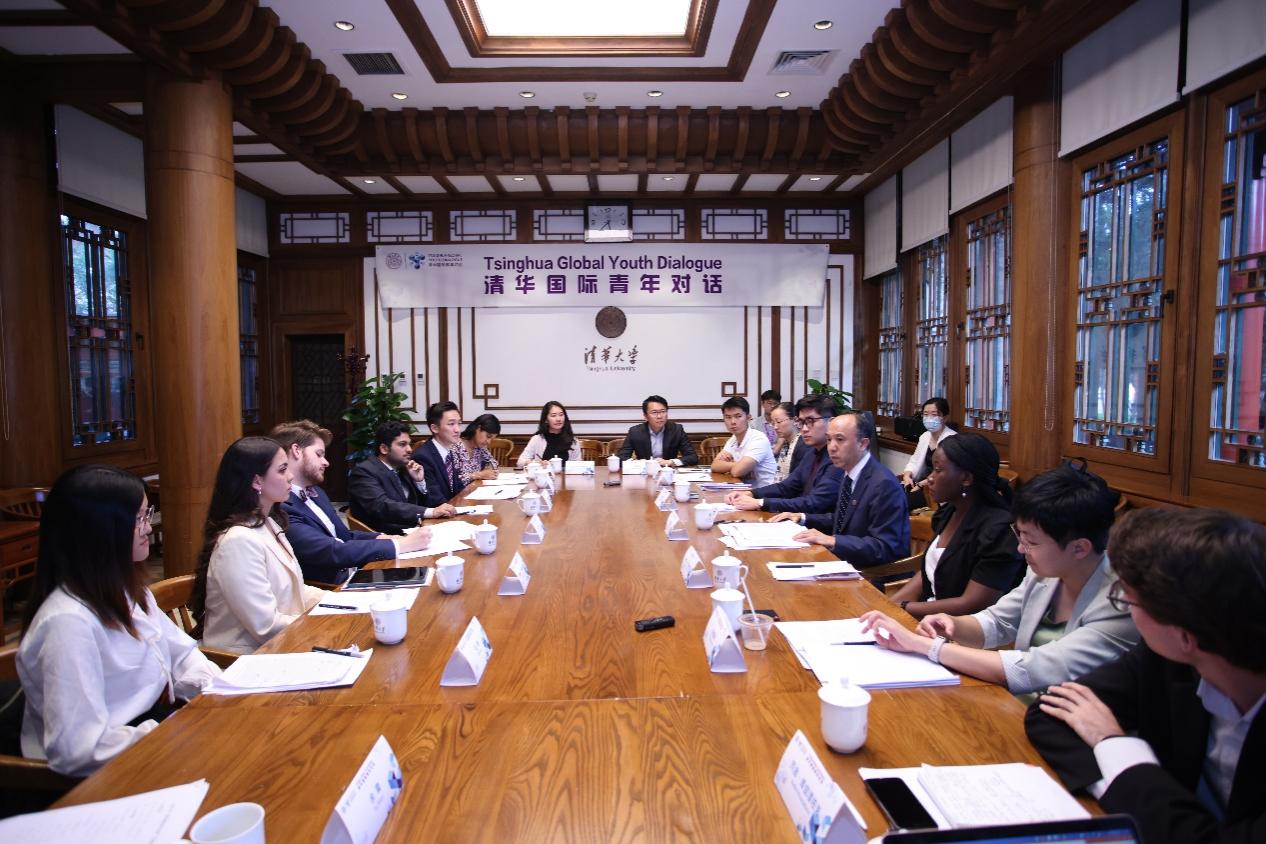
Following the opening ceremony, 12 youth representatives engaged in discussions with Wang Hongwei. Prof. Wang encouraged youth representatives to become "inaugural cohorts" of the "Tsinghua Global Youth Dialogue", "friends of Tsinghua" who understand and care about Tsinghua, "experts of China" who pay close attention to China's development, and "open ambassadors" for international exchanges aimed at establishing a community with a shared future for mankind.
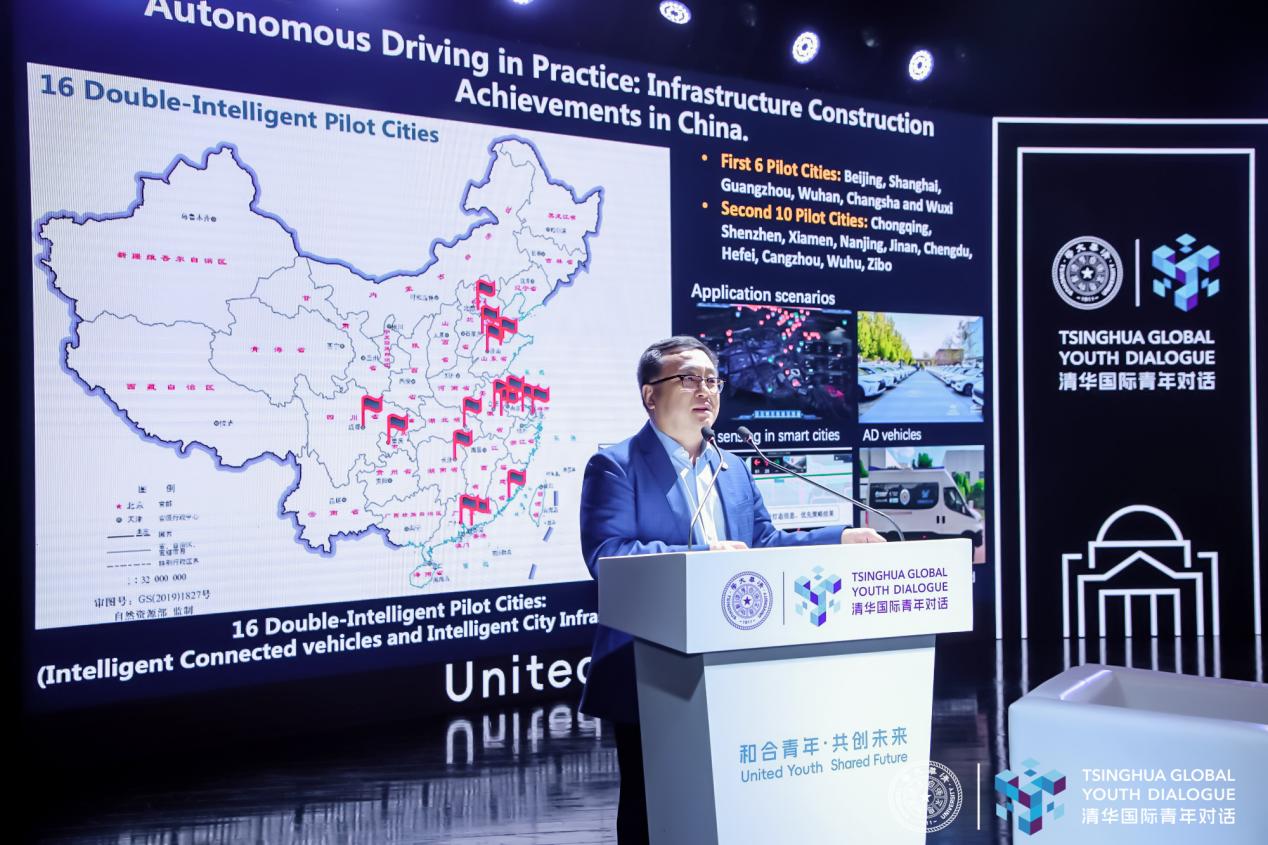
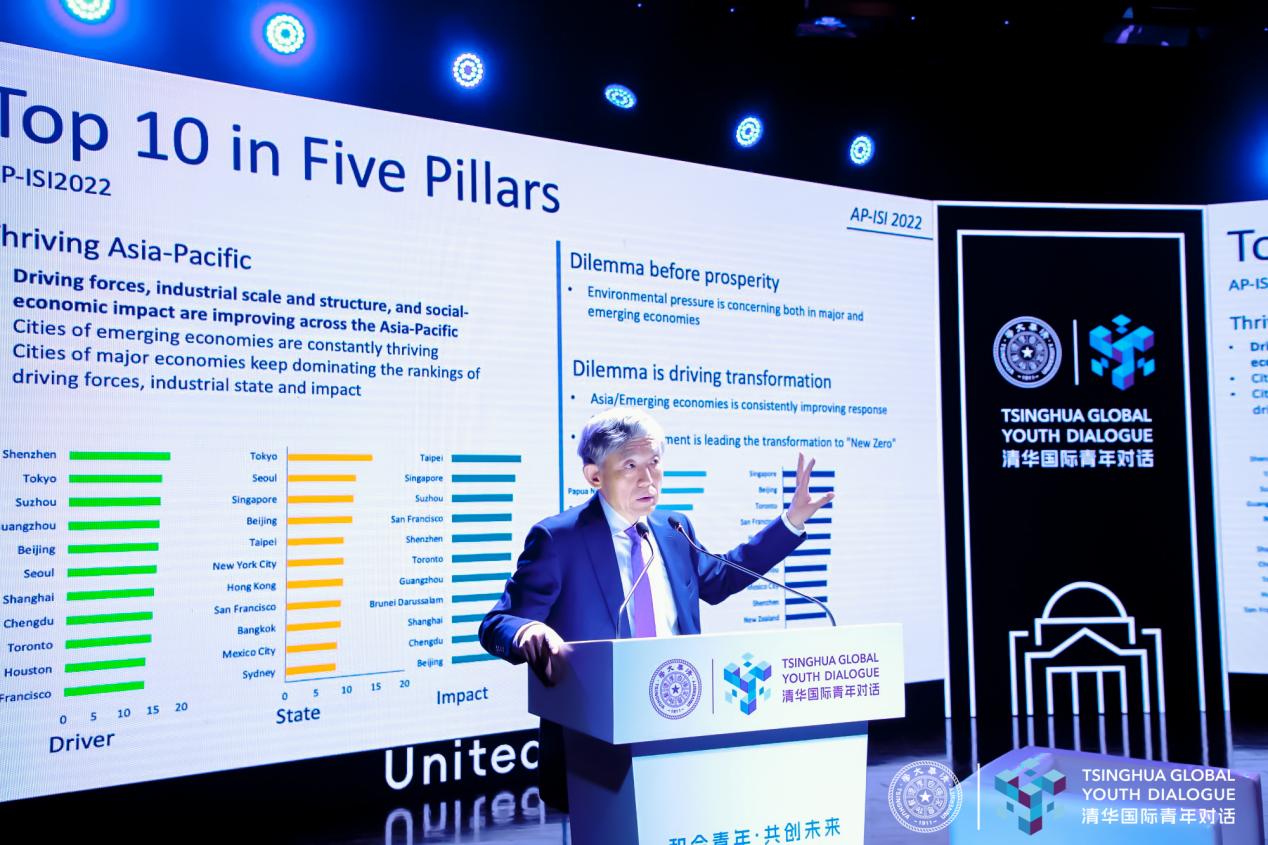
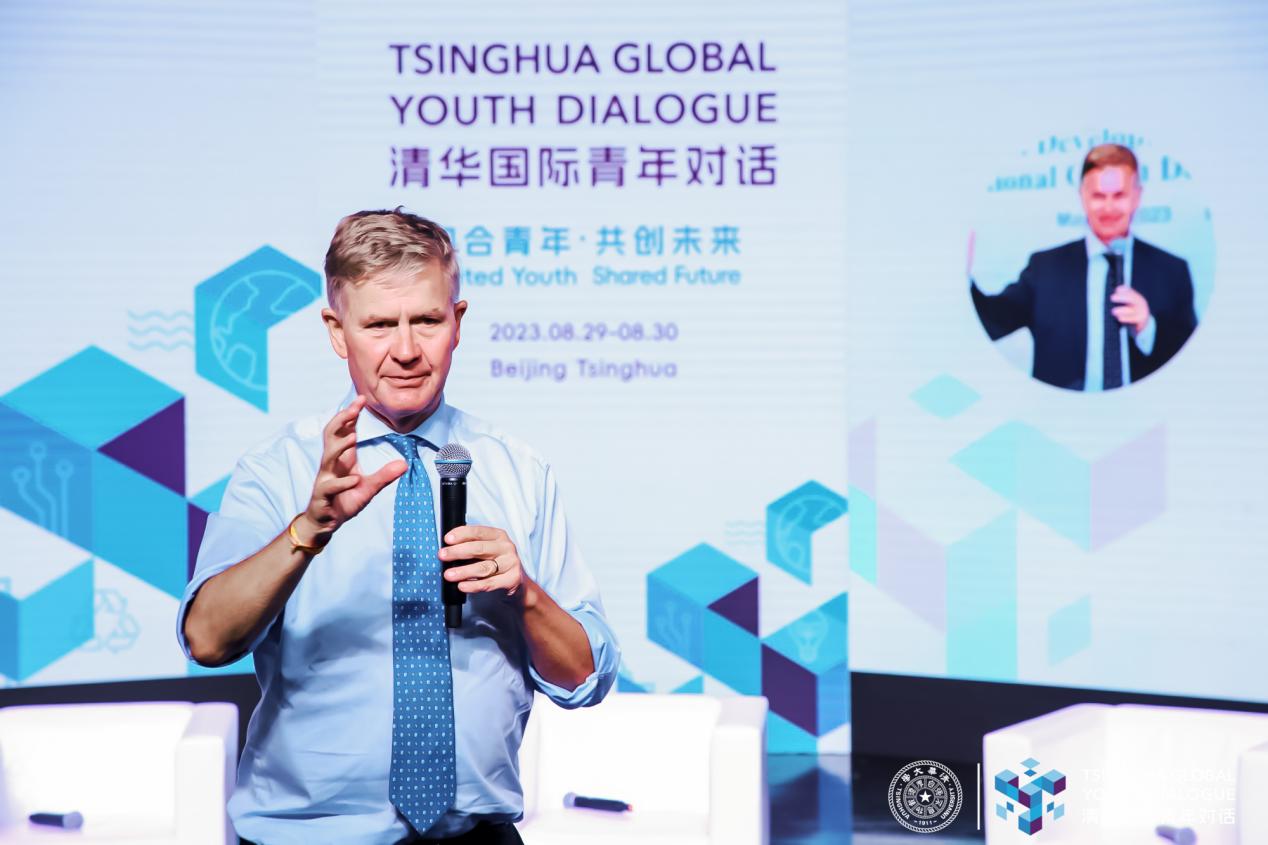
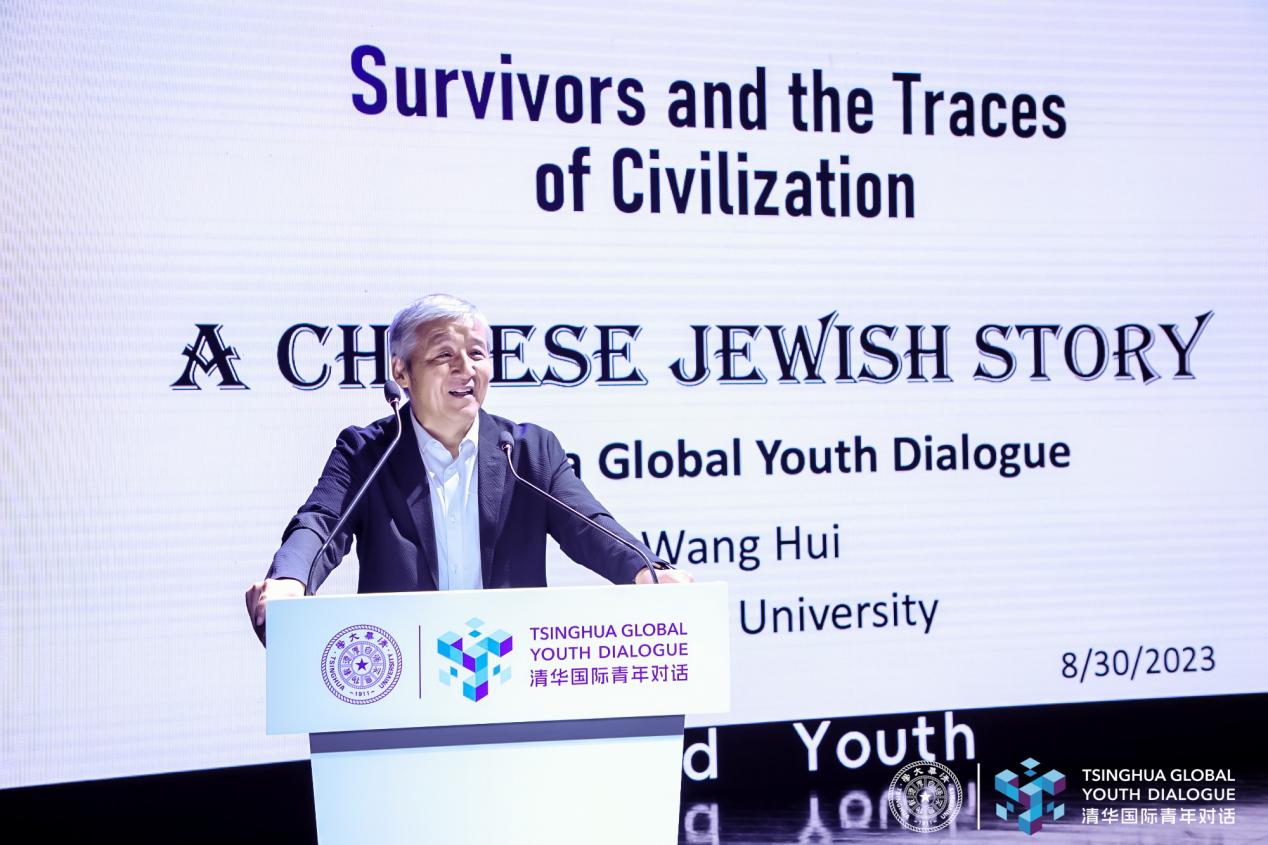
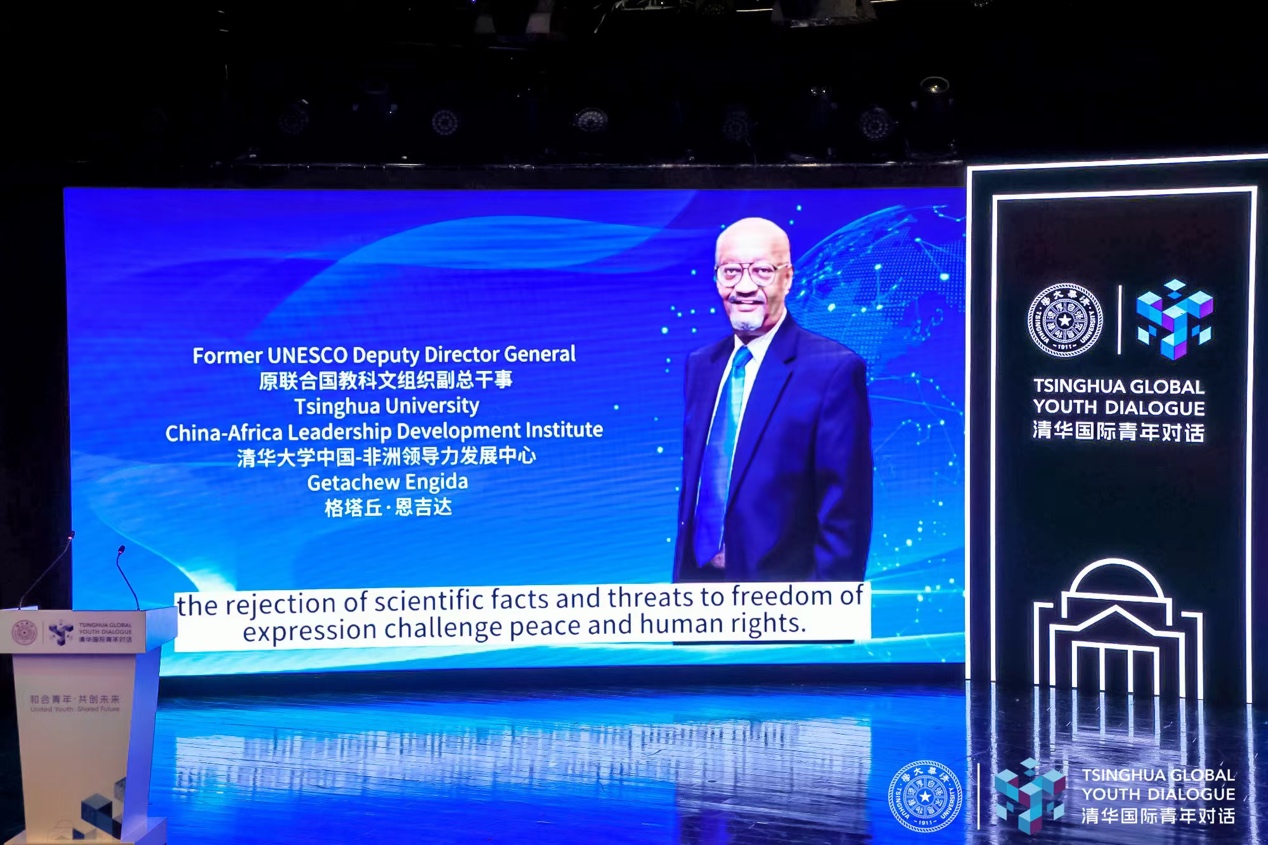

The keynote speech and round-table sessions took place on the afternoon of August 30. They focused on the themes of building civilization through innovation, development and dialogue. The keynote speeches were delivered by Zhang Yaqin, Dean of the Institute for AI Industry Research (AIR) of Tsinghua University, Xue Lan, Dean of Schwarzman College and Co-Chairman of the Center for Industrial Development and Environmental Governance (CIDEG) at Tsinghua University, Erik Solheim, Chairman of the BRI International Green Development Coalition and former UN Environment Executive Director and Under-Secretary-General of the United Nations, Wang Hui, Dean of the Tsinghua Institute for Advanced Study in Humanities and Social Sciences, and Getachew Engida, former Deputy Director-General of UNESCO and Co-Chairman of the China-Africa Leadership Development Institute at Tsinghua University. Following keynote speeches, youth representatives also engaged in round-table discussions based on their individual experience and thoughts.
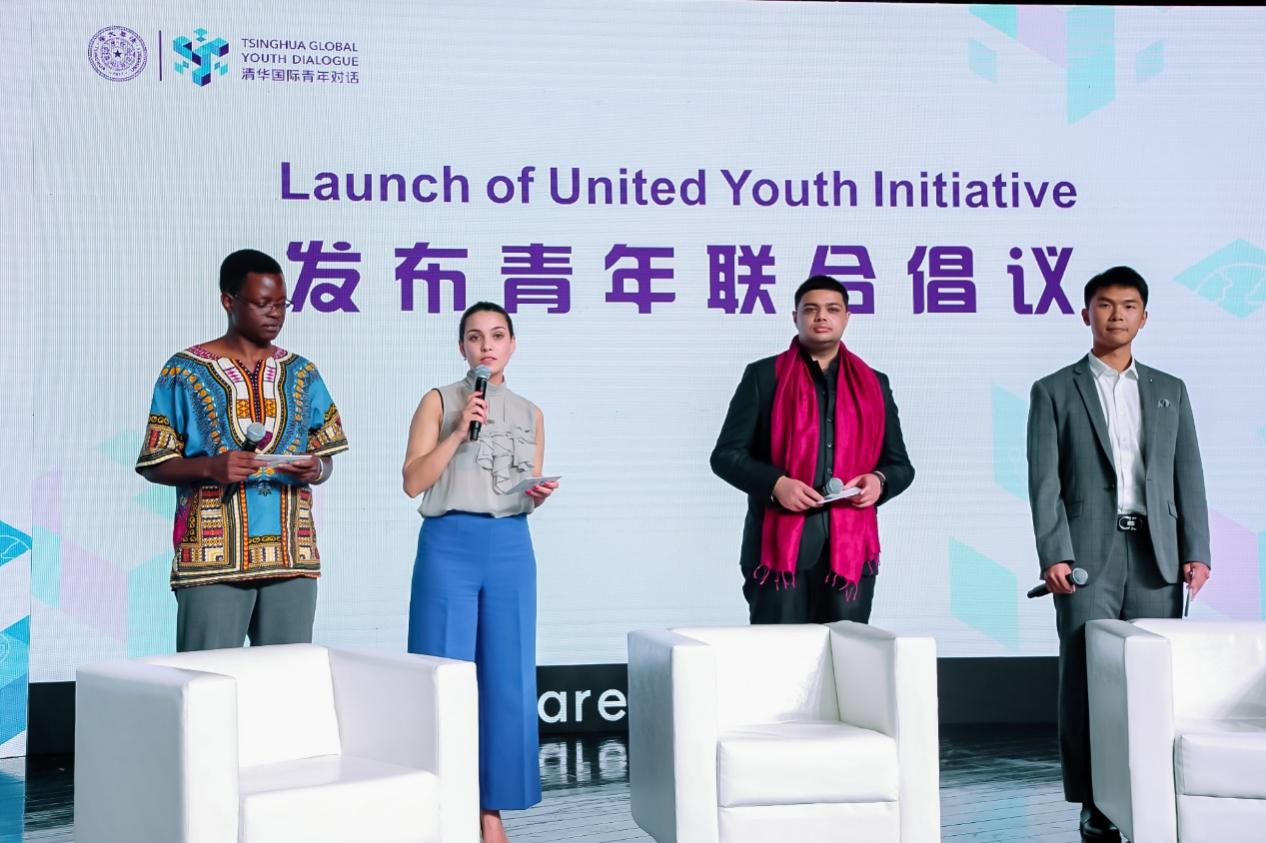
At the end of the event, youth representatives from China, India, Hungary, and Zimbabwe read aloud the United Youth Initiative "Our Common Future." This initiative, based on the "time capsule" made by youth representatives, is generated with the assistance of AI technology developed by Tsinghua University. It calls on young people worldwide to actively cooperate and to contribute to building a more harmonious, inclusive, open, and sustainable world.
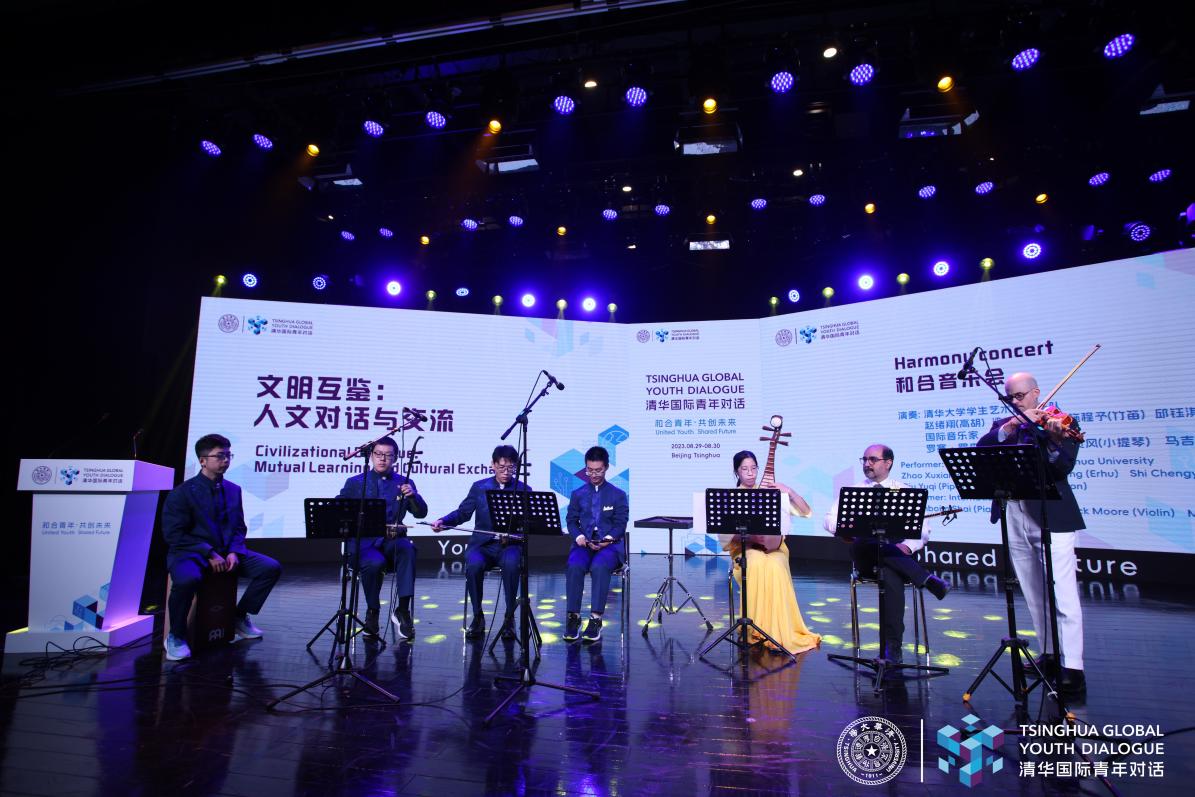
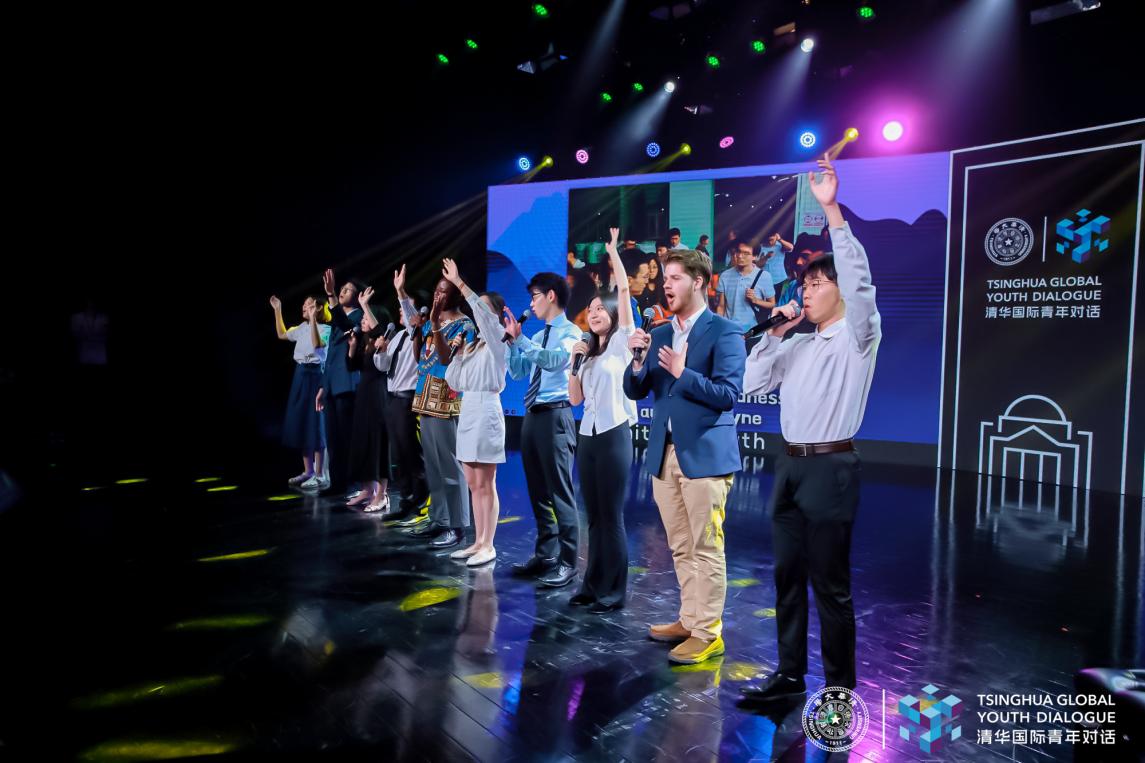
The inaugural "Tsinghua Global Youth Dialogue" takes the form of "practice + dialogue". For the part of practice, young representatives from China and elsewhere visited Shenzhen, Chengdu, Deyang, Beijing and other cities to gain first-hand experience of China's innovation and immerse themselves in the charm of Chinese culture. The dialogue session adhered to the concept of "diversity and integration". The Harmony Concert was co-presented by both the Tsinghua Student Art Troupe of Chinese Folk Music and foreign musicians, showing the charm of cultural exchange and integration through both traditional and modern Chinese instruments. At the closing ceremony, youth representatives sang Auld Lang Syne in multiple languages, expressing their desire to further strengthen youth communications and cooperation.
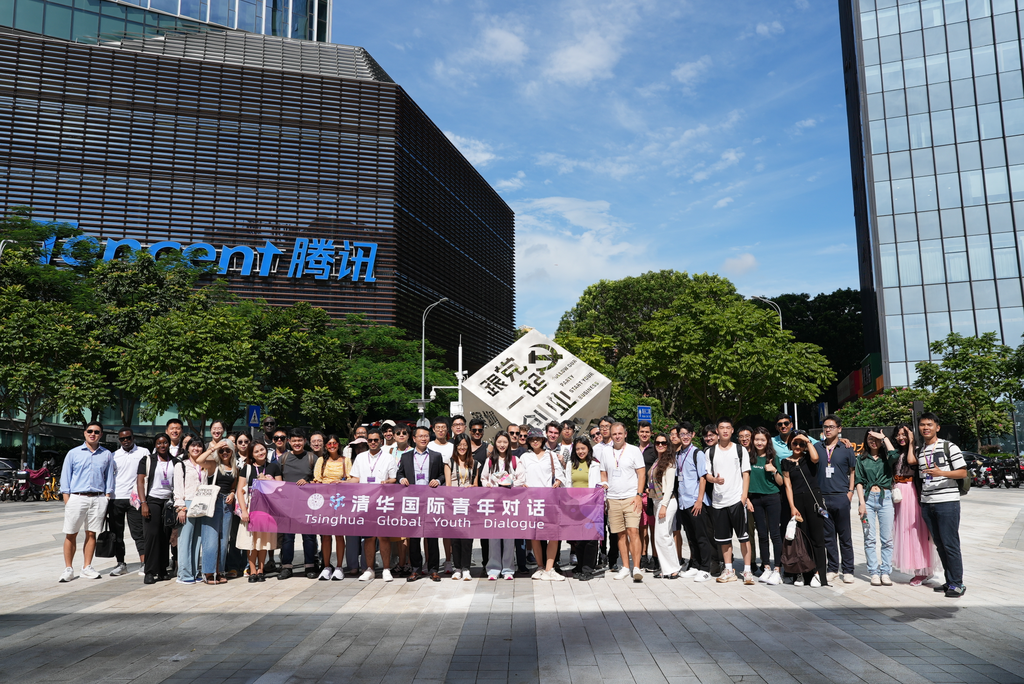
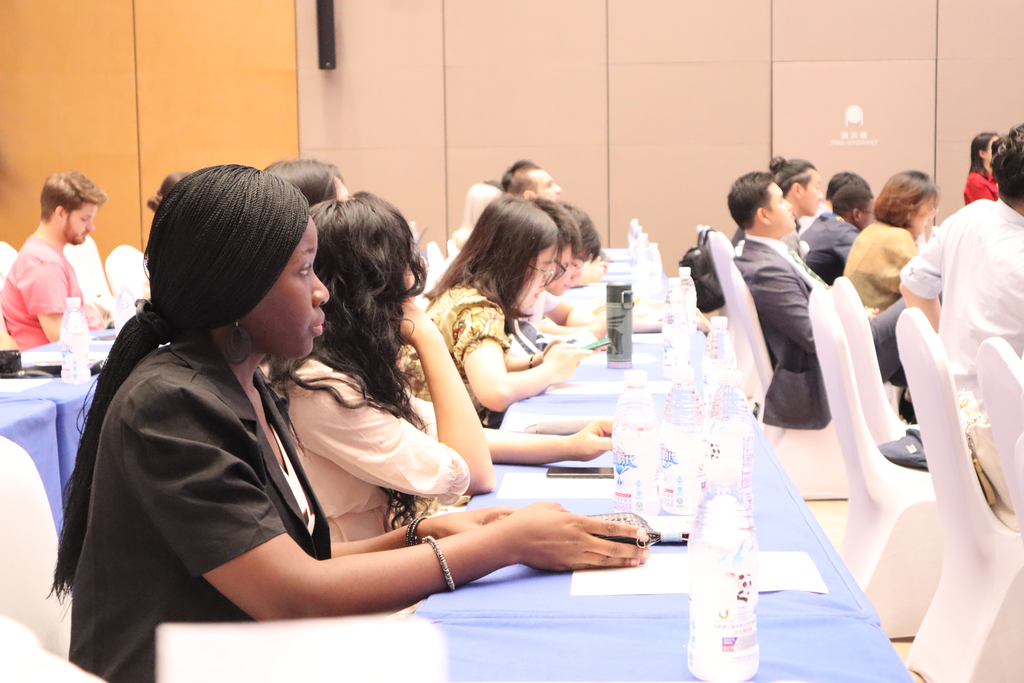
The "Tsinghua Global Youth Dialogue" is sponsored by Tsinghua University, co-organized by Astana International University in Kazakhstan and Universitas Gadjah Mada in Indonesia, and undertaken by the Tsinghua University Center for Global Competence Development and the Tsinghua University Student Association of the Belt and Road Initiative. The event aims to create a platform for global youth to engage in interactions and discussions and to provide them with an opportunity to explore China and discuss global issues together. Parallel dialogues are also held at Astana International University in Kazakhstan and Universitas Gadjah Mada in Indonesia.
Editors: John Paul, Li Han

